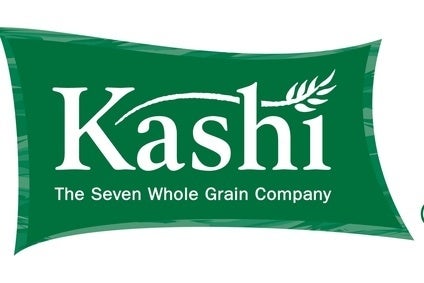Some of the largest food manufacturers in the US have been sluggish to react to a consumer-led revolution around attitudes to health,wellness and sustainability. In a soft consumption environment they are now paying the price: struggling to make inroads into an area of growth in the US and losing market share to challenger brands, Katy Askew argues.
For years, US consumers have been well known for a general sense of apathy concerning sustainability issues.
According to the latest edition of National Geographic Society’s Greendex survey, of the 18 countries examined – from India and China, to Brazil, South Africa and Sweden – US consumers were the least “green” in their consumption patterns when it comes to housing, transportation and consumer goods. They ranked 15th with regard to food consumption.
While the US imports the least food, consumers in the country are among the least likely to eat locally-produced foods, the survey concluded. Americans also consume more packaged and processed food than people in most other countries.
But the attitudes of some US consumers are changing. For a growing number of Americans, sustainability issues are playing a more significant role in consumption choices.
A sustainability survey conducted in 2013 by Bridgestone Americas and Bridgestone Retail Operations (BSRO) found 92% of respondents indicated a manufacturer’s “operational sustainability” or a product’s “sustainable attributes” have “some impact” on their purchasing decisions.

US Tariffs are shifting - will you react or anticipate?
Don’t let policy changes catch you off guard. Stay proactive with real-time data and expert analysis.
By GlobalDataBeyond increasing concern for the environment, awareness of sustainability issues can be linked to a significant change in the way people view health and wellness.
“For consumers, sustainability is initially tied to perceptions of risk mitigation and health… Personal health benefits typically are expressed in sustainable products as a lack of negative/ toxic ingredients… Recognisable ingredients that can be found in the average consumer’s kitchen, such as citrus, vinegar and baking soda, cue that a product is benign,” industry consultants The Hartman Group notes.
In this context, we can see the significant growth witnessed by the natural and organic segment and growing demand for products that are GMO-free should be linked to evolving attitudes to health and wellness. Foods viewed as more sustainable are also frequently viewed as “healthier”.
According to Packaged Facts, US retail sales of natural and organic foods and beverages will rise 5.5% to nearly US$53.5bn in 2014, 53% higher than sales five years earlier. The organic foods sector is expected to see growth of 12.5% “leaping ahead” in the year, the research firm suggests. Likewise, growing concern over GMOs has resulted in booming demand for GMO-free products.
The stellar performance from the natural and organic sector is outpacing the overall market, suggesting that natural and organic products are taking a larger share of total sales. Grocery store sales in the country rose to US$579bn in 2013, a year-on-year increase of 2.3%, data from Statistica reveals.
In many respects, some of the US’s largest packaged food manufacturers have been left playing catch-up while challenger brands and start-ups have been allowed to steal a march.
In its most recent financial update, Kellogg management admitted its own natural brand – Kashi – “has not performed as well as we would have liked over the past few years”.
In particular, Kellogg CEO John Bryant said, integrating Kashi into Kellogg’s broader corporate structure had damaged the brands ability to compete against smaller, more agile, natural and organic food makers.
“We need to address the brand’s positioning and our ability to execute quickly enough in the evolving world of natural and organic foods. We haven’t kept Kashi focused enough on progressive nutrition,” he observed during an analyst call.
General Mills has also been struggling to build momentum in its domestic market – where it generates the majority of group profits but recently reported a 5% drop in retail sales. The company’s answer has been to turn to M&A in order to beef up its presence in the natural and organic aisle.
General Mills bought up US natural and organic processed food maker Annie’s for an eye-watering US$820m – a massive 51% premium to the 30-day average of the company’s stock. At 27x the firm’s expected EBITDA for 2014/15, it seems clear General Mills was forced to pay a hefty price for being late to the party.
Elsewhere, brands have been hit by shifting attitudes to diet.
As part of the move towards clean labels, simple ingredients and positive nutrition, interest in hard diet brands has waned. Consumers want to eat healthily, rather than diet hard. Diet brands such as Nestle’s Lean Cuisine and ConAgra’s Healthy Choice have fallen out of favour with today’s consumers.
It would seem that is a lot of legwork ahead, if the US’s larger food manufacturers are to leverage one of the few areas witnessing buoyant growth in a lacklustre consumption environment.





